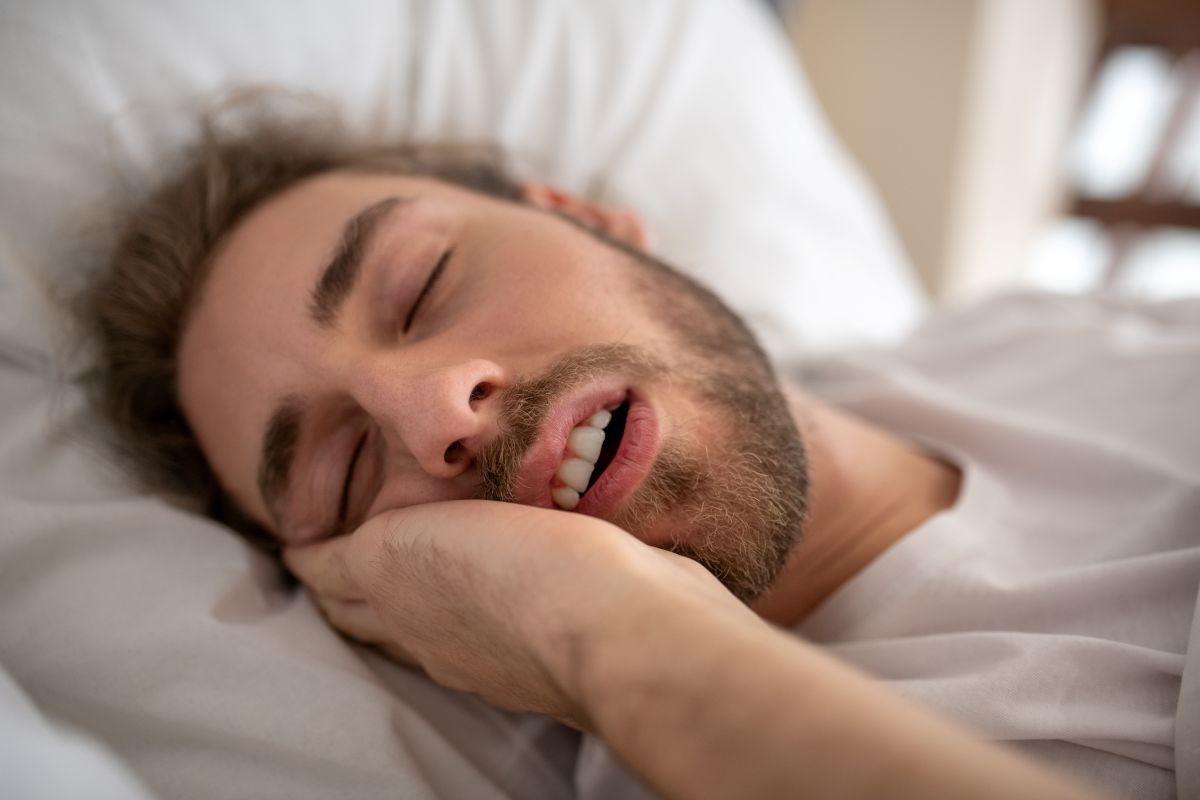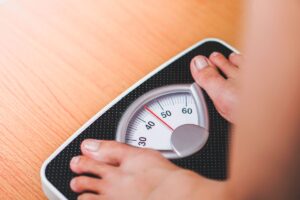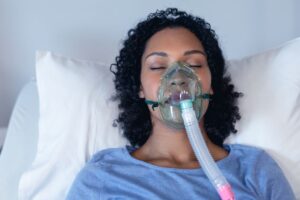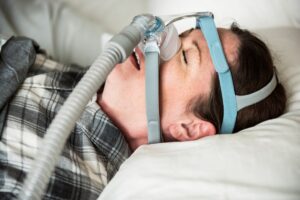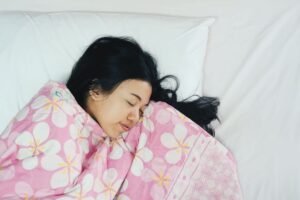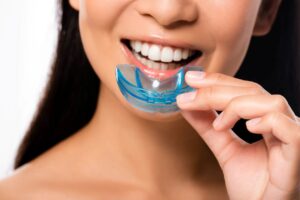Do you wake up tired, even after a full night’s sleep? Has someone told you that you snore — or even stop breathing while you sleep?
If so, you might be one of the millions of people living with undiagnosed sleep apnea, a condition that disrupts your breathing while you sleep and puts serious strain on your body and brain.
Sleep apnea can be silent but dangerous. Recognizing the signs early can help you get the treatment you need and protect your long-term health.
What Is Sleep Apnea?
Sleep apnea is a disorder in which your breathing repeatedly stops and starts while you sleep. These pauses can last from a few seconds to over a minute and may happen dozens — or even hundreds — of times per night.
There are two main types:
- Obstructive Sleep Apnea (OSA): The most common form, caused by airway blockage.
- Central Sleep Apnea (CSA): A less common form caused by the brain not sending proper signals to breathe.
Most people who suffer from sleep apnea have OSA — and many don’t even know it.
Common Signs and Symptoms of Sleep Apnea
Loud, Chronic Snoring
While not all snoring is sleep apnea, frequent, loud snoring — especially if it’s punctuated by gasping or choking sounds — is one of the most common red flags.
Waking Up Gasping or Choking
If your breathing stops during sleep, your brain will trigger a brief wake-up to restart breathing. You may not remember it, but your partner might notice.
Excessive Daytime Sleepiness
Do you feel tired, foggy, or groggy during the day, no matter how early you went to bed? This could be due to frequent sleep interruptions from apnea episodes.
Morning Headaches
Low oxygen levels during the night can cause blood vessels to dilate, leading to headaches when you wake up.
Dry Mouth or Sore Throat
Waking up with a dry mouth or sore throat may indicate that you’re breathing through your mouth due to airway obstruction.
Difficulty Concentrating
Ongoing poor-quality sleep can lead to brain fog, memory problems, and trouble focusing, which are commonly overlooked as sleep-related.
Mood Changes or Irritability
Poor sleep affects emotional regulation. People with sleep apnea may feel more anxious, depressed, or irritable than usual.
Frequent Nighttime Bathroom Trips
Waking up multiple times at night to urinate (nocturia) has been linked to untreated sleep apnea, especially in older adults.
Restless Sleep or Insomnia
If you toss and turn, kick your legs, or wake up frequently throughout the night, it could be your body reacting to apnea events.
Observed Pauses in Breathing
Often the most telling sign comes from a bed partner who notices that you stop breathing during sleep or gasp for air.
Who’s Most at Risk?
You may be at higher risk for sleep apnea if you:
- Are overweight or obese
- Have a large neck or small jaw
- Are male (though women often go undiagnosed)
- Are over age 40
- Smoke or drink alcohol regularly
- Have nasal congestion or sinus issues
- Have a family history of sleep apnea
Even if you don’t fit all the risk factors, anyone can have sleep apnea — even children.
Why You Shouldn’t Ignore the Signs
Left untreated, sleep apnea can increase your risk of:
- High blood pressure
- Heart disease and stroke
- Type 2 diabetes
- Cognitive decline
- Depression and anxiety
- Fatigue-related car or work accidents
It also affects your quality of life — from your relationships and productivity to your energy, focus, and mood.
How Is Sleep Apnea Diagnosed?
The most accurate way to diagnose sleep apnea is through a sleep study, which can often be done at home. You’ll wear a small device overnight that records your breathing, oxygen levels, and heart rate.
Your results will help determine whether you have sleep apnea, how severe it is, and what treatment is right for you.
Want to learn more? Check out: How At-Home Sleep Apnea Tests Work
Next Steps If You Have Symptoms
If any of these signs sound familiar, it’s important to get evaluated. Even if your symptoms are mild, catching sleep apnea early can prevent long-term complications and drastically improve your quality of life.
We offer convenient home sleep testing and personalized treatment plans — including non-CPAP alternatives like oral appliance therapy.
Related: CPAP Alternatives for Sleep Apnea That Actually Work
Frequently Asked Questions
How do I know if I have sleep apnea or just snore?
Snoring is common, but if it’s loud, frequent, or paired with choking or gasping, it could be sleep apnea. Daytime fatigue is another key indicator.
Can sleep apnea go away on its own?
In most cases, no. While weight loss and lifestyle changes can improve symptoms, professional evaluation and treatment are key to managing the condition.
Is sleep apnea dangerous?
Yes. If left untreated, sleep apnea increases your risk of high blood pressure, heart disease, diabetes, and even sudden cardiac events during sleep.
Can thin people have sleep apnea?
Yes. While weight is a risk factor, people of all body types can have sleep apnea — especially if they have narrow airways or other anatomical issues.
What should I do if I think I have sleep apnea?
Start by talking to a sleep specialist or trained dental provider. You may qualify for a home sleep study, which is a simple and effective first step.
